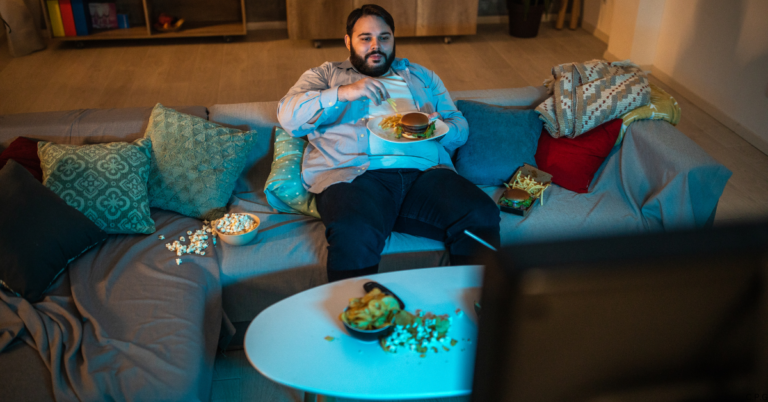
Hypnotherapy Support with Eating Habit Concerns
Here we explain how hypnotherapy support with eating habit concerns can help. Hypnotherapy can be an effective tool for improving eating habits by addressing the subconscious patterns and emotional triggers that influence food choices, overeating, and unhealthy behaviours around food.
Many eating habits are deeply ingrained in the subconscious mind and are often linked to emotions, stress, past experiences, or limiting beliefs. Hypnotherapy works by helping individuals reprogram these habits, gain control over cravings, and develop a healthier relationship with food.
How Hypnotherapy can Support Healthier Eating Habits
Breaking Unconscious Eating Patterns
Many people struggle with mindless or unconscious eating, where they consume food without paying attention to hunger cues or the type of food they’re eating. Hypnotherapy helps break this pattern by bringing more awareness to the eating process. Through hypnosis, individuals can learn to tune into their body’s natural hunger and fullness signals, encouraging more mindful eating. This helps prevent overeating and emotional eating.
Reducing Cravings for Unhealthy Foods
Cravings for unhealthy foods, like sugary snacks or junk food, are often driven by emotional needs, stress, or deeply ingrained habits. Hypnotherapy can help reduce cravings by addressing the subconscious reasons behind these urges. During hypnosis, the therapist can introduce suggestions that diminish the desire for unhealthy foods while increasing the appeal of healthier options. By changing how the mind associates with certain foods, cravings can be significantly reduced or eliminated.
Releasing Emotional Eating Triggers
Emotional eating is a common issue where individuals use food as a way to cope with feelings like stress, sadness, loneliness, or boredom. Hypnotherapy helps individuals understand and release these emotional triggers by addressing the underlying emotions driving the behaviour. In a hypnotic state, individuals can explore the root causes of their emotional eating and learn healthier ways to manage their emotions without turning to food for comfort.

Changing Negative Beliefs About Food and Body Image
Many unhealthy eating habits are tied to negative beliefs about food, such as associating food with guilt or using it as a reward or punishment. Similarly, poor body image can lead to restrictive eating or bingeing cycles. Hypnotherapy works by helping individuals change these negative beliefs, replacing them with healthier, more balanced attitudes toward food and body image. This shift allows individuals to make healthier food choices without the emotional burden of guilt or shame.
Building a Positive Relationship with Food
Hypnotherapy helps individuals develop a healthier and more positive relationship with food. Instead of viewing food as a source of stress, guilt, or emotional comfort, hypnotherapy encourages individuals to see food as nourishment and fuel for the body. Through guided visualization and positive affirmations, individuals can learn to enjoy eating in a balanced and mindful way, focusing on how food makes them feel rather than using it as a coping mechanism.
Addressing Stress-Related Eating
Stress is a major trigger for unhealthy eating habits, particularly for those who turn to food as a way to cope. Hypnotherapy helps reduce stress by teaching relaxation techniques and calming the nervous system. By addressing the underlying stress, individuals can break the cycle of stress-eating and develop healthier ways of coping with life’s pressures. In a relaxed state, the hypnotherapist can also suggest alternative coping strategies, such as deep breathing or exercise, that individuals can use when they feel stressed.
Boosting Motivation for Healthy Eating
Many people struggle with maintaining the motivation to eat healthily or stick to a balanced diet. Hypnotherapy can boost motivation by strengthening the desire to make healthier choices. During hypnosis, the therapist can reinforce positive associations with healthy eating, such as feeling more energetic, improving overall well-being, or achieving weight loss goals. This mental shift makes it easier for individuals to stay motivated and committed to their healthy eating plans.

Overcoming Binge Eating
Binge eating, characterized by consuming large amounts of food in a short period, is often driven by emotional or psychological factors. Hypnotherapy helps individuals address the subconscious triggers behind binge eating episodes. By exploring and healing past traumas, emotional stress, or feelings of inadequacy, hypnotherapy can reduce the urge to binge. Additionally, the therapist can suggest healthier ways to manage feelings of overwhelm or anxiety that often lead to binge eating.
Controlling Portion Sizes
For some individuals, portion control can be a challenge, leading to overeating even when they’re not truly hungry. Hypnotherapy can help individuals regain control over their portion sizes by teaching them to listen to their body’s hunger and fullness signals. The therapist may introduce suggestions that encourage individuals to slow down while eating, savour each bite, and stop when they feel satisfied rather than continuing to eat out of habit or emotional need.
Addressing Food Addictions
Some people may develop food addictions, particularly to foods high in sugar, fat, or salt. These addictions can feel overwhelming, leading to a cycle of craving and overconsumption. Hypnotherapy helps individuals break free from these addictive patterns by reprogramming the subconscious associations they have with these foods. By introducing suggestions that reduce the emotional attachment to these foods, hypnotherapy helps individuals feel more in control of their eating choices.
Supporting Weight Loss Goals
Hypnotherapy can be a valuable tool for individuals looking to lose weight by supporting healthier eating habits and reducing emotional eating. It works by helping individuals stay focused on their weight loss goals, reducing the mental and emotional barriers that often lead to weight gain or prevent weight loss. Through positive reinforcement and mental rehearsal of healthy behaviours, individuals can make lasting changes to their diet and lifestyle, supporting their long-term weight loss success.

Improving Self-Control and Willpower
One of the challenges many people face with eating habits is maintaining self-control, especially in situations where temptation is high. Hypnotherapy helps strengthen self-control by reinforcing the individual’s ability to resist cravings and make mindful choices. By reprogramming the subconscious to associate positive feelings with healthy eating and self-discipline, individuals find it easier to maintain their willpower in the face of temptation.
Reinforcing Positive Lifestyle Changes
Eating habits are often part of broader lifestyle patterns, such as lack of exercise, poor sleep, or high stress. Hypnotherapy can support overall lifestyle changes by addressing multiple factors that contribute to unhealthy eating. For instance, the hypnotherapist may work on improving sleep patterns, reducing stress, or encouraging regular physical activity, all of which contribute to better eating habits.
Scientific Research for Hypnotherapy Support with Eating Habit Concerns
Research has shown that hypnotherapy can be an effective tool for addressing emotional eating, reducing cravings, and supporting weight loss. Studies have demonstrated that individuals who use hypnotherapy alongside traditional weight loss programs are more likely to achieve and maintain their weight loss goals. Hypnotherapy is particularly effective at addressing the psychological and emotional factors that often drive unhealthy eating behaviours, leading to more sustainable changes.
If this is the right treatment for you and would like to book your free consultation, please Click Here. If you have any questions please Contact Us.
You can also take a look at our other treatments here
